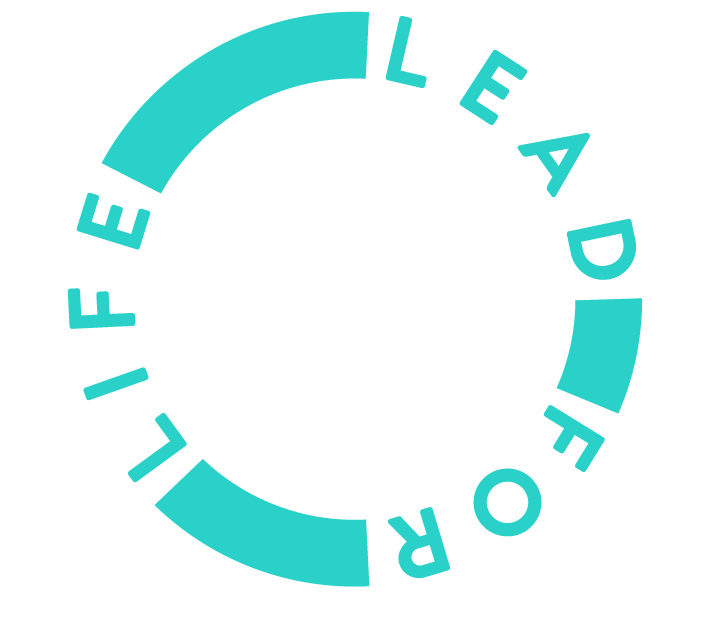Mentor Journey
What is Lead for Life mentoring?
Lead for Life mentoring is about developing empowering relationships with students to help them flourish as individuals and as a group. As a mentor, you’ll provide perspective, accountability, and unbiased advice as they navigate through university and discuss lessons learned from Lead for Life courses. Our mentors comprise experienced and emerging leaders passionate about helping young adults become effective leaders. Mentors are paired with a partner to guide a mentor group of about ten students for one year of their university experience.

Lead for Life mentoring is about developing empowering relationships with students to help them flourish as individuals and as a group. As a mentor, you’ll provide perspective, accountability, and unbiased advice as they navigate through university and discuss lessons learned from Lead for Life courses. Our mentors comprise experienced and emerging leaders passionate about helping young adults become effective leaders. Mentors are paired with a partner to guide a mentor group of about ten students for one year of their university experience.

Our Mentor Stories

Mentors as Exemplars

Lead for Life mentors are committed individuals who possess the capacity for reflection, willingness, availability, and evidence of character, leadership, and flourishing communities in their own lives. Our aim is to build a diverse group of mentors of different ages, ethnicities, industries, and experiences. As a mentor, you will participate in our Lead for Life central events and work with your mentor group students to organise your own gatherings. The anticipated time commitment for mentors is about 4-6 hours per month. Communication through social messaging apps or emails will be ongoing throughout the year. While students are encouraged to attend as many meetings as possible, they are only required to attend a minimum of one meeting each semester, in consideration of their study timetables. We’re here to support you every step of the way and answer any questions you may have.

Lead for Life mentors are committed individuals who possess the capacity for reflection, willingness, availability, and evidence of character, leadership, and flourishing communities in their own lives. Our aim is to build a diverse group of mentors of different ages, ethnicities, industries, and experiences. As a mentor, you will participate in our Lead for Life central events and work with your mentor group students to organise your own gatherings. The anticipated time commitment for mentors is about 4-6 hours per month. Communication through social messaging apps or emails will be ongoing throughout the year. While students are encouraged to attend as many meetings as possible, they are only required to attend a minimum of one meeting each semester, in consideration of their study timetables. We’re here to support you every step of the way and answer any questions you may have.
Will I receive training and support?

We’re committed to providing ongoing training, support, and resources for our mentors to make your experience successful. Lead for Life is committed to providing two mentor training sessions each year, along with additional resources available on our website. These sessions will focus on not only the craft of mentoring but also character leadership training in the workplace. Our team of mentoring experts in Hong Kong and Regent College, Vancouver, will provide this training. Our team is ever ready to offer ongoing support to help mentors navigate various situations. You will be part of a supportive peer mentoring community of practice, where you will receive continuous encouragement and helpful tips to help you along the way. We are dedicated to helping our mentors have an enjoyable and effective mentoring experience, and grow in their skills, which will also be applicable in their day-to-day professions and lives.


What is expected of me as a Lead for Life mentor?

As a Lead for Life mentor, we want to provide you with some guidelines to help you succeed in your role. Here are some tips to keep in mind:

As a Lead for Life mentor, we want to provide you with some guidelines to help you succeed in your role. Here are some tips to keep in mind:
Dos

- Set up clear communication channels and establish expectations for responding.
- Clearly communicate details of mentor group gatherings, including location, purpose, and expectations.
- Create a safe and inclusive environment for students to share differences and work through challenges.
- Plan diverse activities that cater to the abilities, backgrounds, and cultural needs of your mentor group students, and that align with the programme's goals.
- Be encouraging and motivating as you help your students expand their comfort zones and try new things
- Have fun!
Don'ts

- Avoid just telling your mentees what to do. Instead, listen actively to them before sharing your experiences of what had worked in your life.
- Do not bring mentees to inappropriate venues or events, and be sensitive to differing needs, such as cultural and religious dietary restrictions. Alcohol should not be served or consumed at Lead for Life events.
- Avoid discussion of sensitive or inappropriate topics. Redirect your mentees to other available resources at the university, such as deeper counselling or career support.
- Remember that Lead for Life is primarily a group mentoring programme. If there arises any need for one-to-one mentoring, never meet in private or at odd hours.
Ready to make a difference in our students' lives?

If you would like more information on the programme, please don’t hesitate to contact us.

If you would like more information on the programme, please don’t hesitate to contact us.






